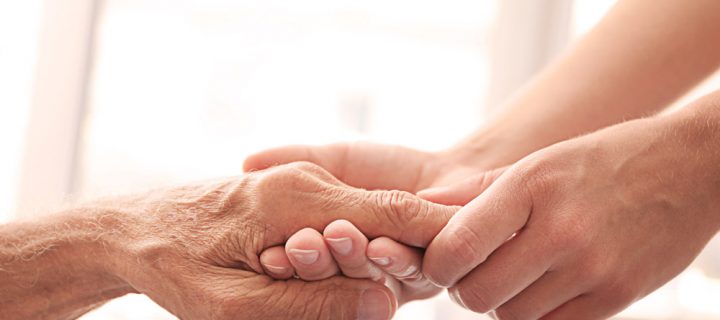From young to old, we all need to be touched. But many seniors are deprived of a caring touch. Let’s talk about touch deprivation in the elderly.
Touch can be incredibly healing. In fact, research has determined that individuals who are touched regularly could exhibit greater levels of oxytocin, which is a hormone that can play a role in lowering stress hormone levels that contribute to ailments like high blood pressure. Beyond that, a caring touch could help someone feel less anxious and less alone, making it an important component to overall wellness, including emotional health. Unfortunately, though, many elderly individuals are touch deprived, especially if they live alone – this is called touch deprivation in the elderly.
Understanding the Effects of Touch Deprivation in the Elderly
To really understand the benefits of touch, even in your own daily life, think about all of the times that you simply hold hands with your partner or spouse, or how many times you hug your child or friends, or how good it feels to get a massage at the spa. Consider how much better you feel, both physically and emotionally, when you’re touched in a nurturing way, knowing that someone who cares about your well-being is there for you.
Related: Older Women Who Get More of This Have Better Sex
Now imagine being a senior whose spouse has passed away and whose children don’t live nearby. Whether living alone in your own home or in an assisted living facility, you no longer have all of those daily comforting touches that you had grown used to. By now, you can probably imagine how quickly loneliness and depression would set in without that warmth and closeness to other human beings.
Touch Deprivation and the Elderly: An All-Too-Common Problem
Seniors who live in nursing facilities or who live alone because they don’t have family nearby are often the ones who suffer most with touch deprivation. These individuals may only be touched when they are being bathed or fed, as a couple of examples. They are basically left alone the majority of the time, and they no longer receive the loving touches that they used to share with others when they were younger.
Lack of touch means that these seniors aren’t receiving the many benefits of it, which include a reduction in negative emotions like anger, aggression, depression, loneliness, and anxiety. Without the boost of oxytocin that comes with physical touch, elderly individuals may end up feeling more stressed, and their physical health may suffer as a result as well.
Related: This Solution Helps Older Men Regain That Frisky Sex Drive
A Simple Massage Might Help
Because touch can be such a beneficial tool in helping the elderly feel better both emotionally and physically, experts recommend gentle massages that can be provided on a regular basis. These massages could help to reduce tension and boost blood flow, and they help to release oxytocin and its soothing effects. Even if only the hands and feet are massaged, this act of touch can be a wonderful way to help a senior feel happier and at ease.
You don’t need to be a professional massage therapist to help an elderly individual feel better either. Even the simplest gesture, such as your arm around someone’s shoulders or a hug, could be just what someone needs. Sometimes it’s wise to assess someone’s personality to find out if they’re receptive to touch first, and then ask if you can hold their hand or give them a hug, always making sure they’re comfortable with being touched.
Ultimately, tackling the problem of touch deprivation is one of several ways to work towards giving seniors a better quality of life, and because touch can be mutually beneficial, those who give it could also feel its positive effects.
Photo credit: Africa Studio/Shutterstock.com











